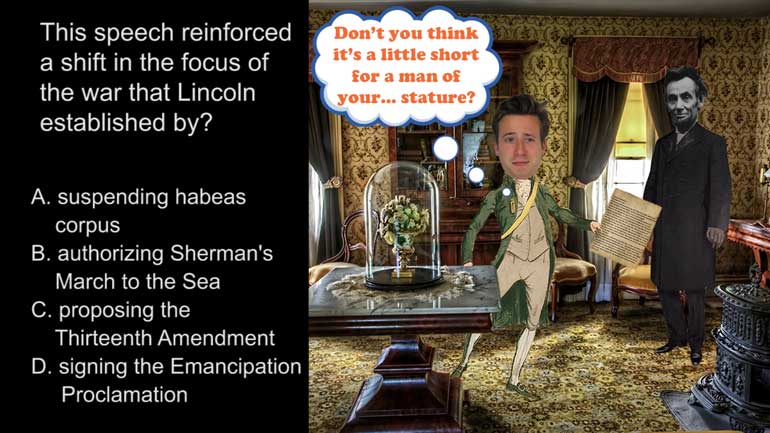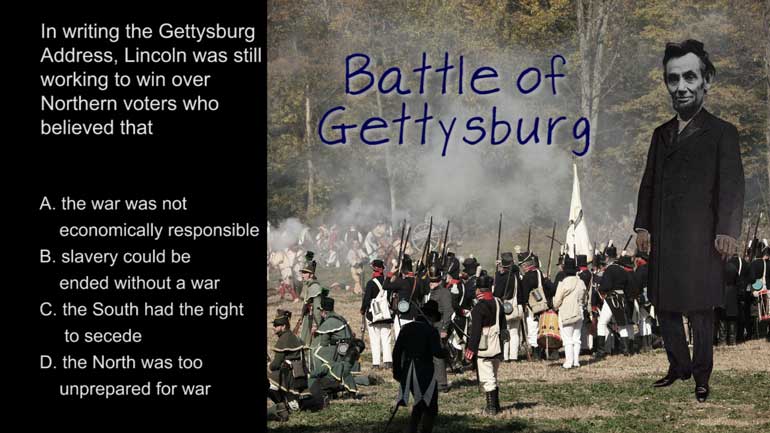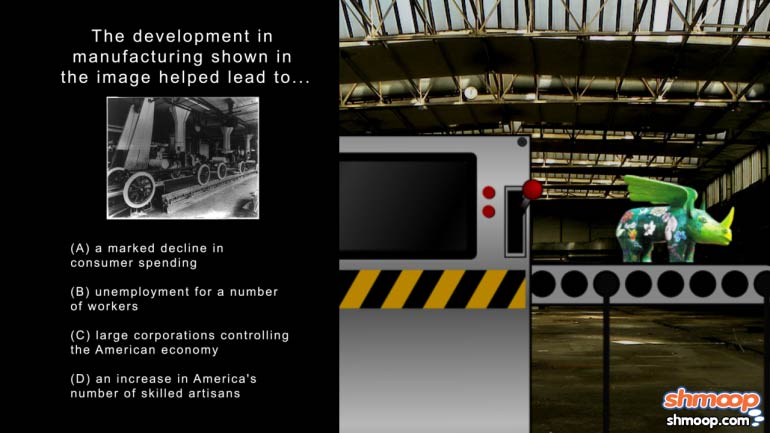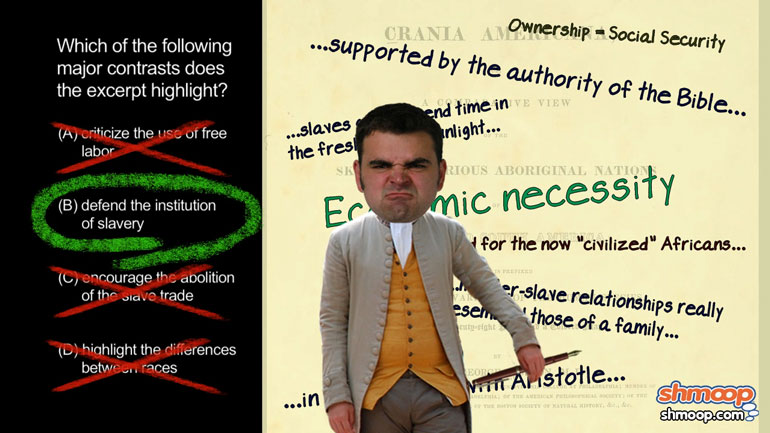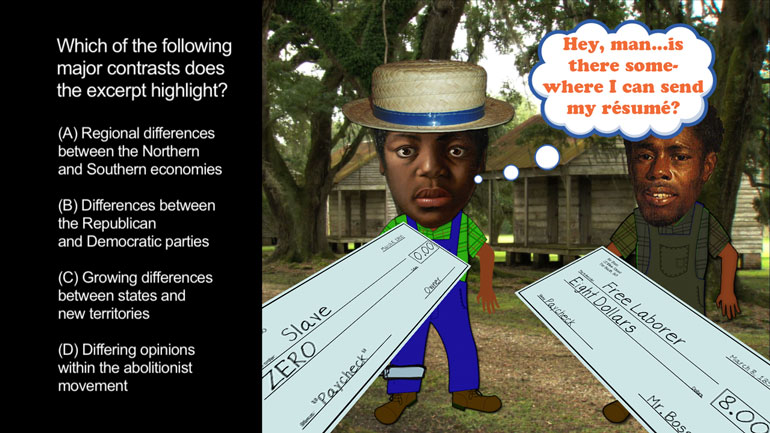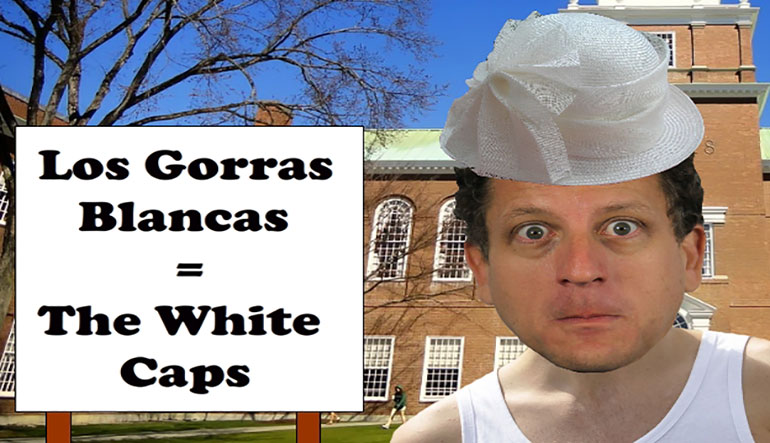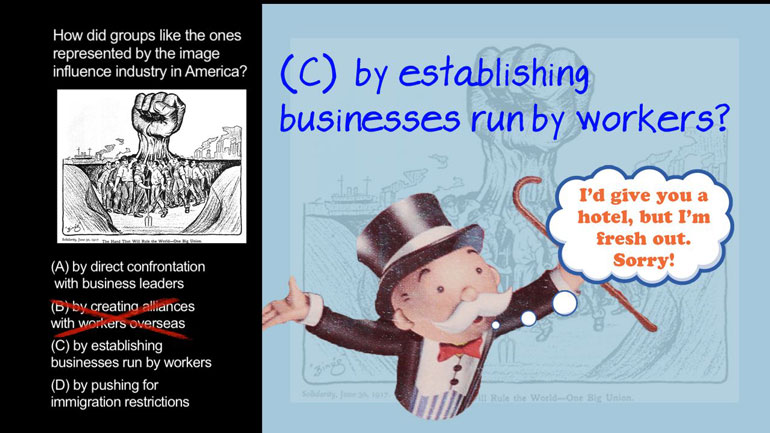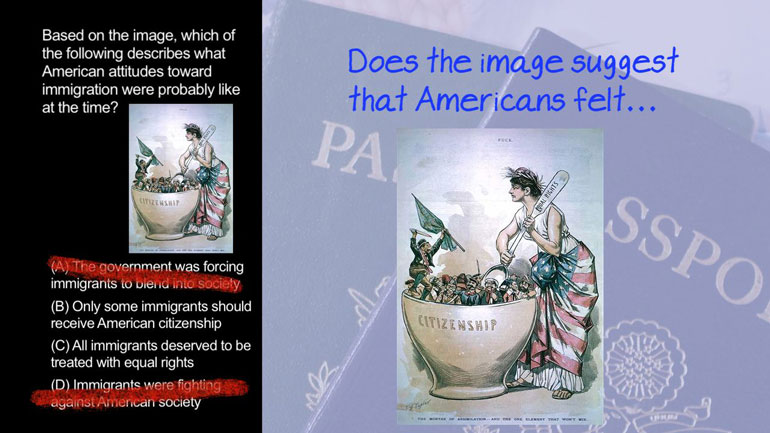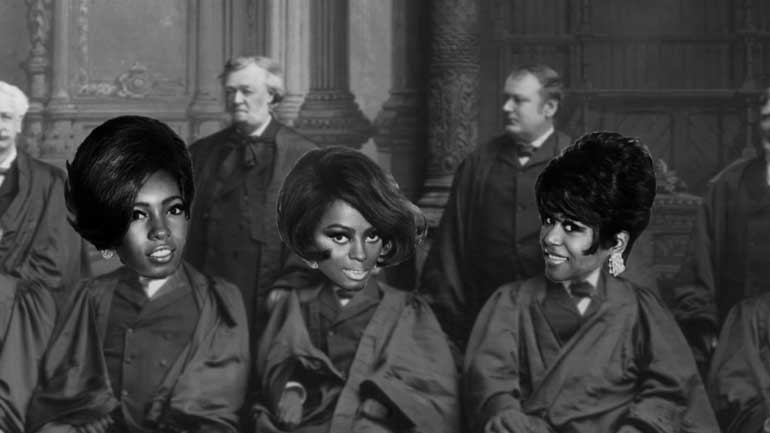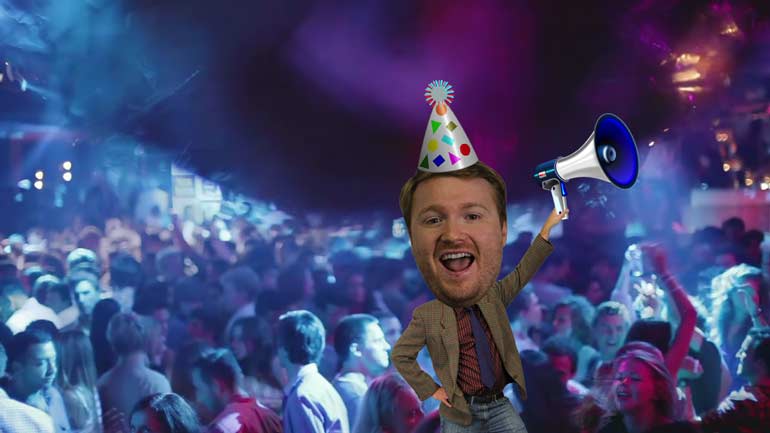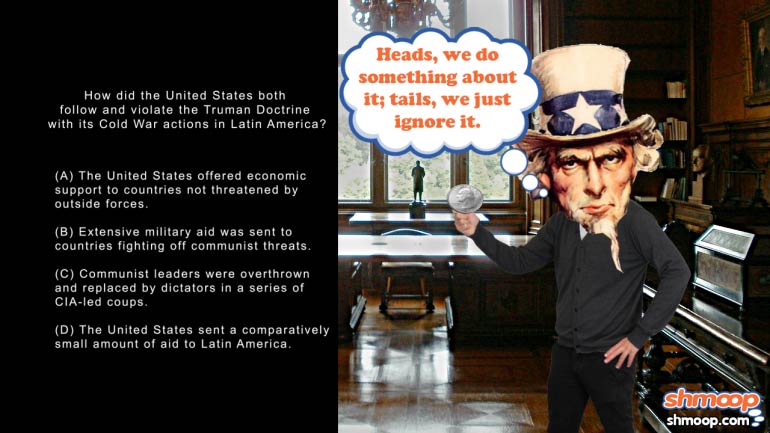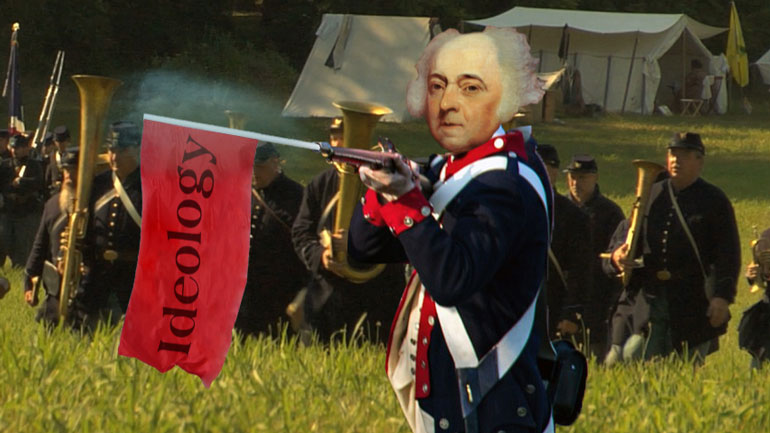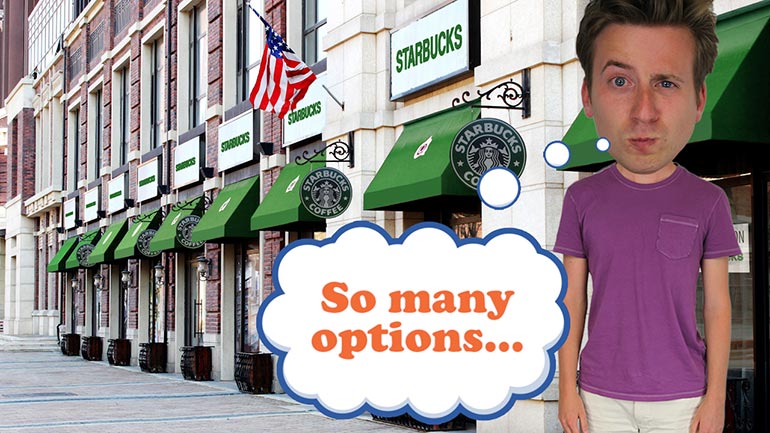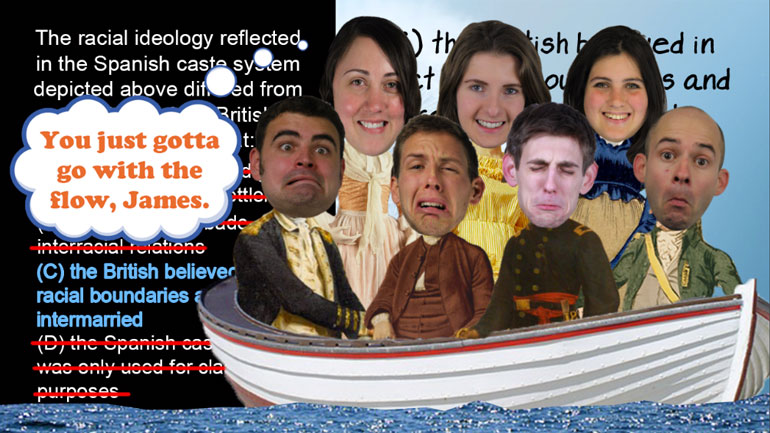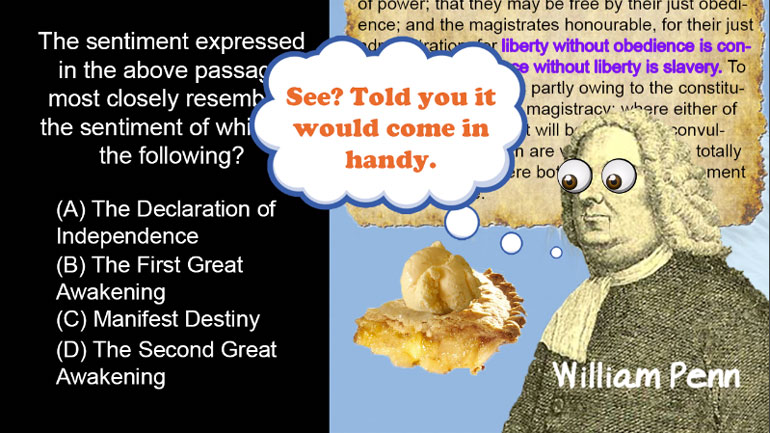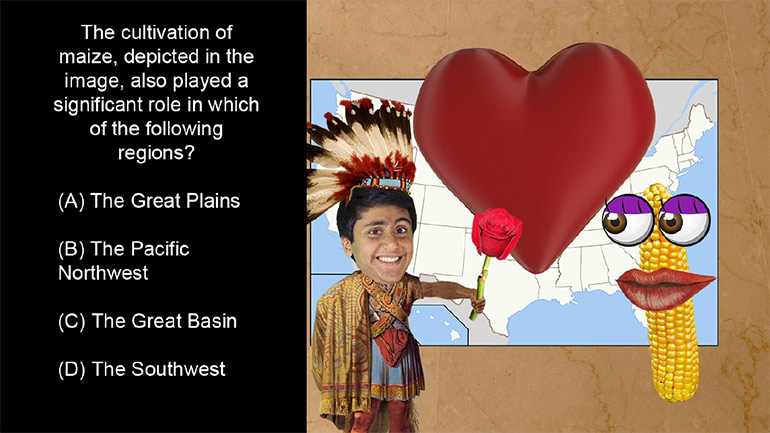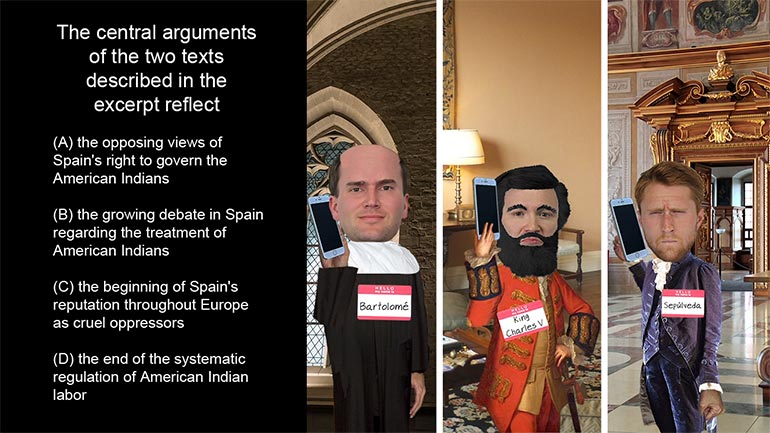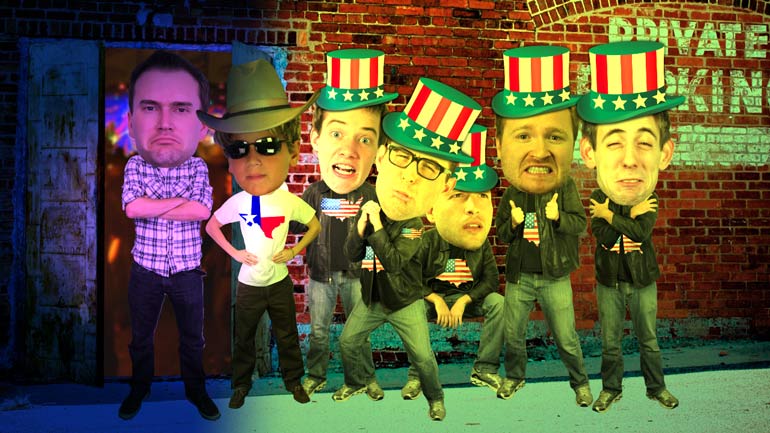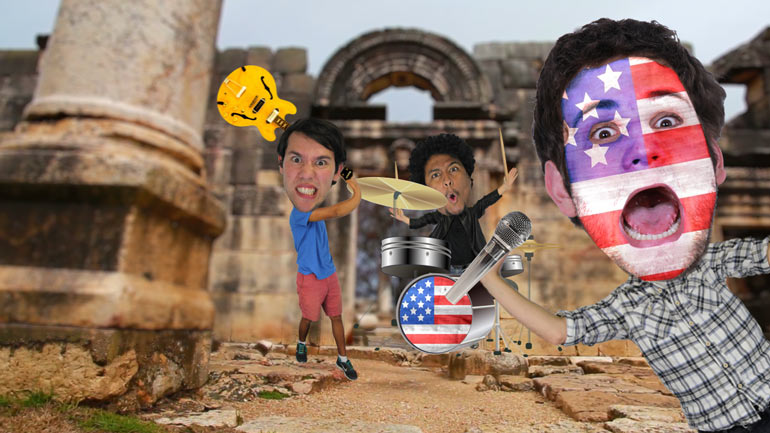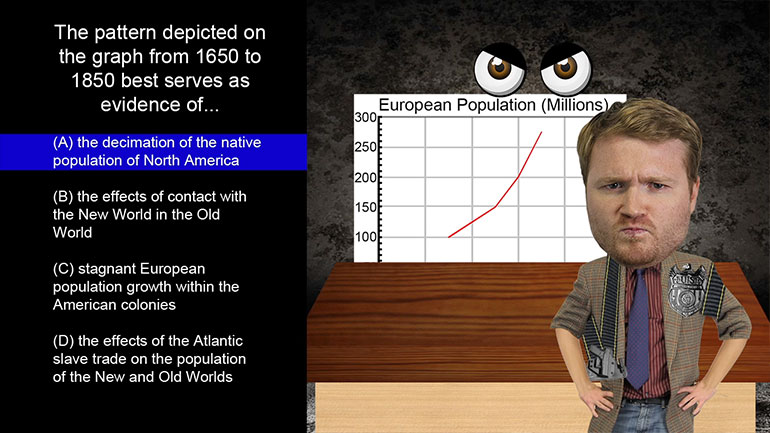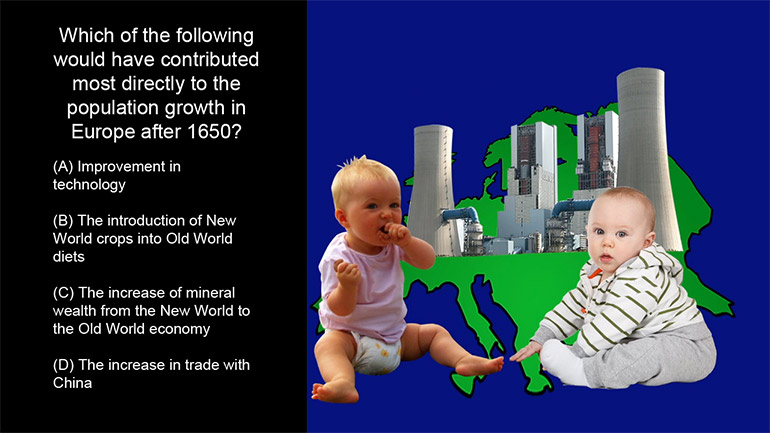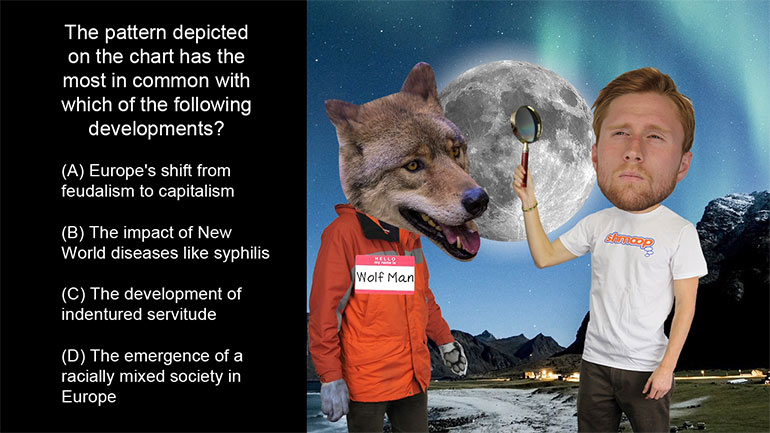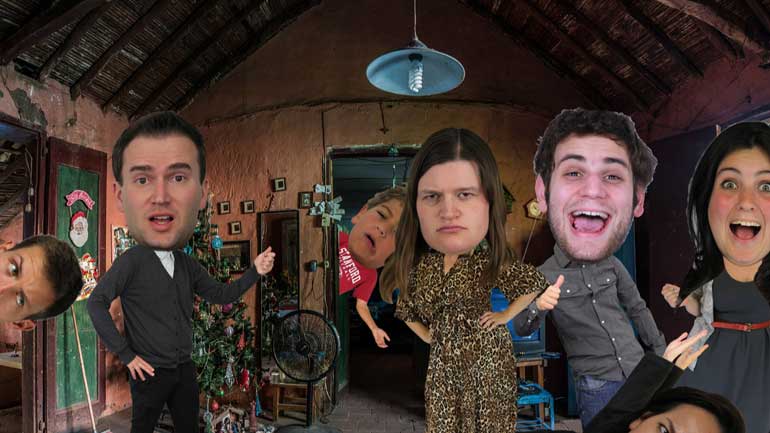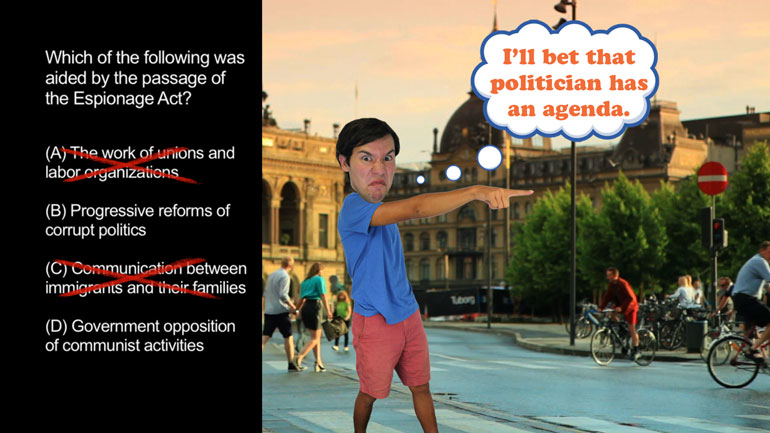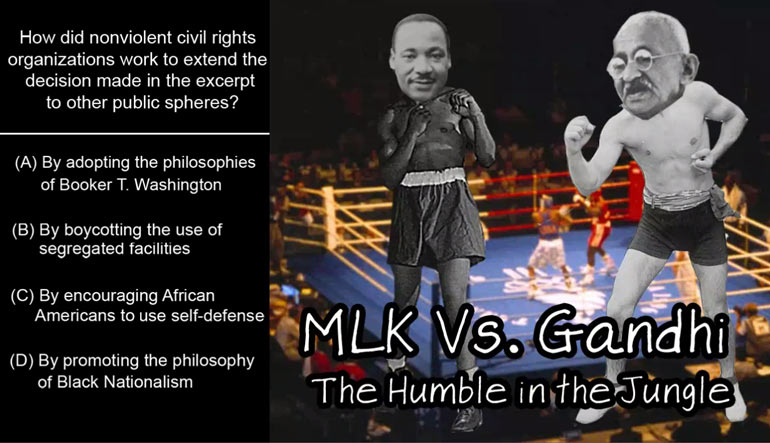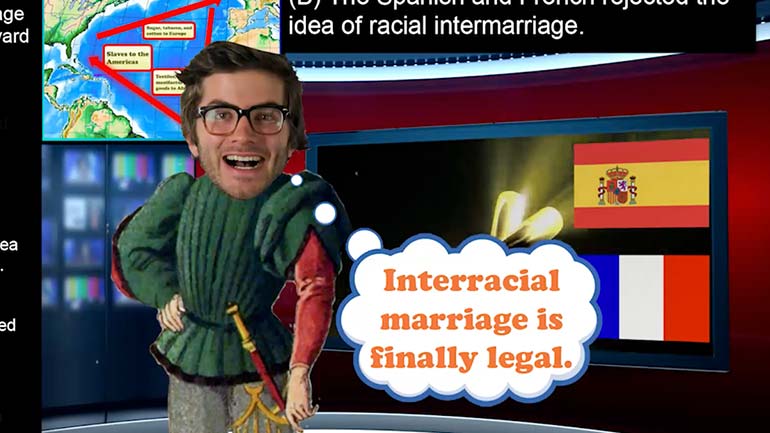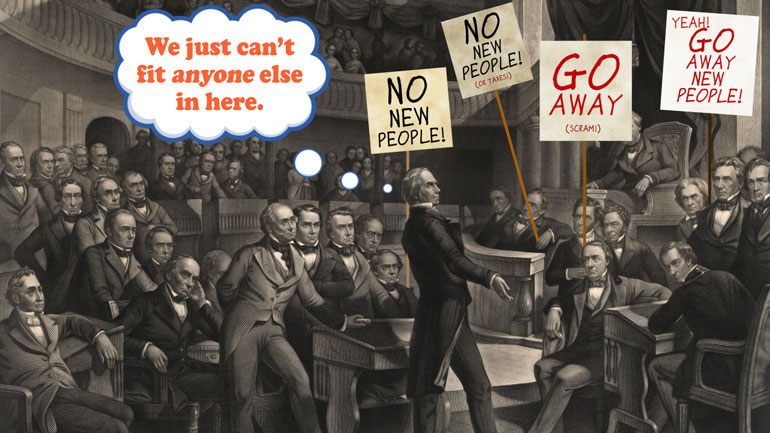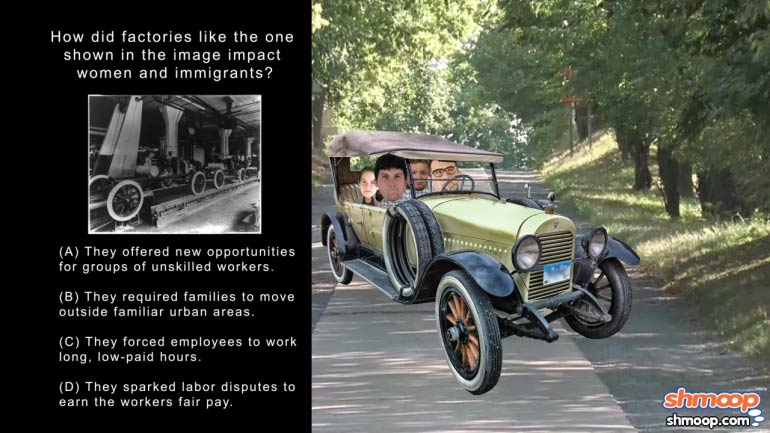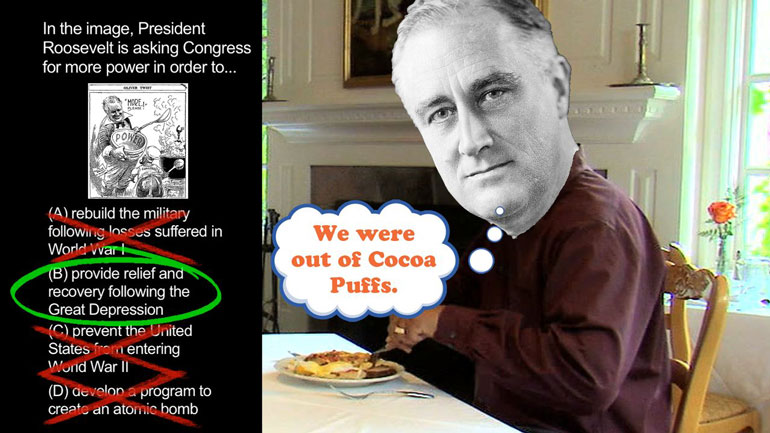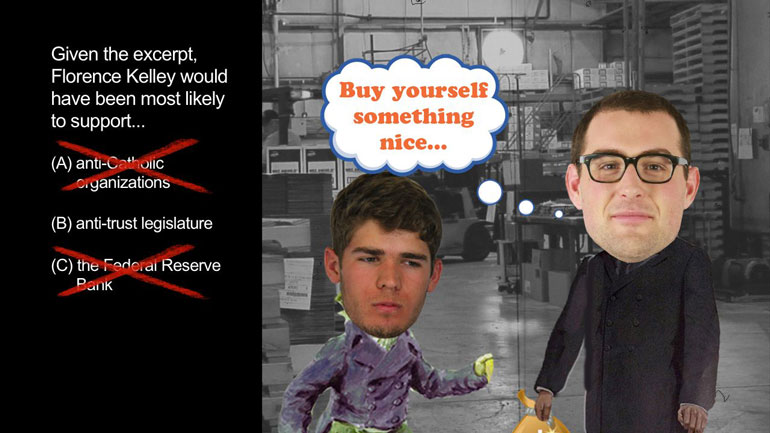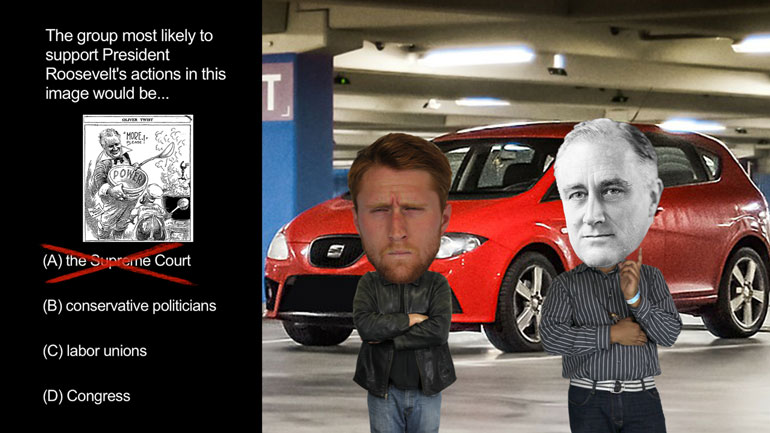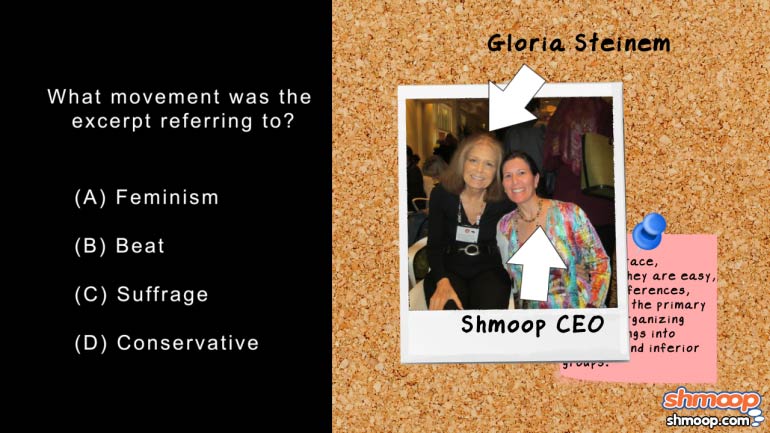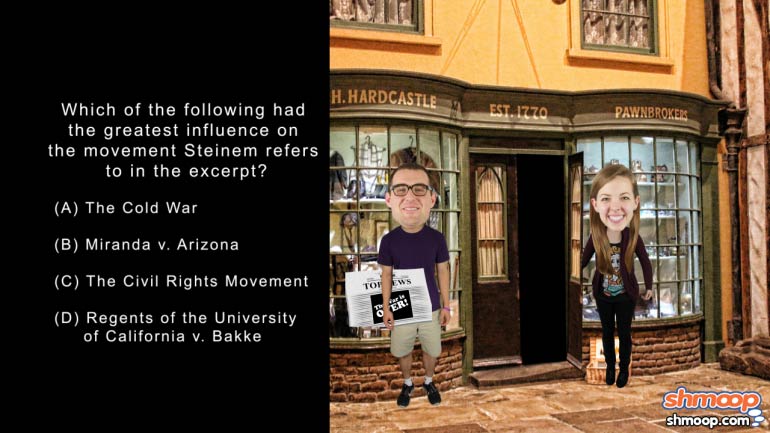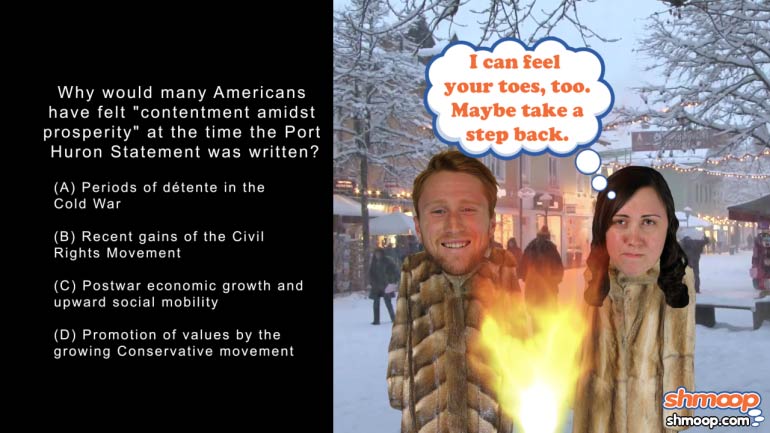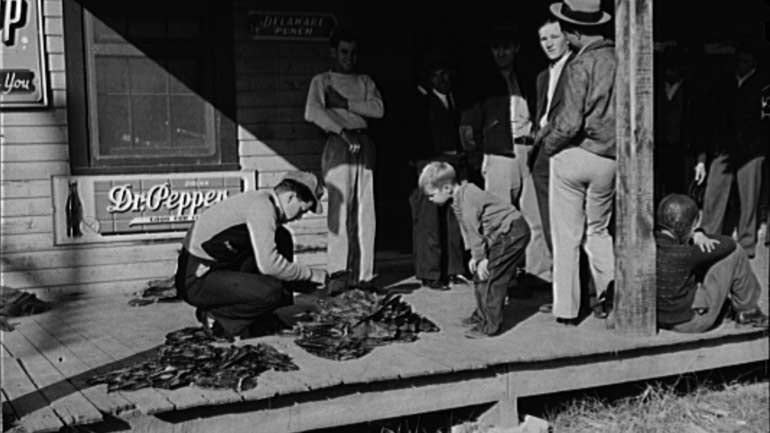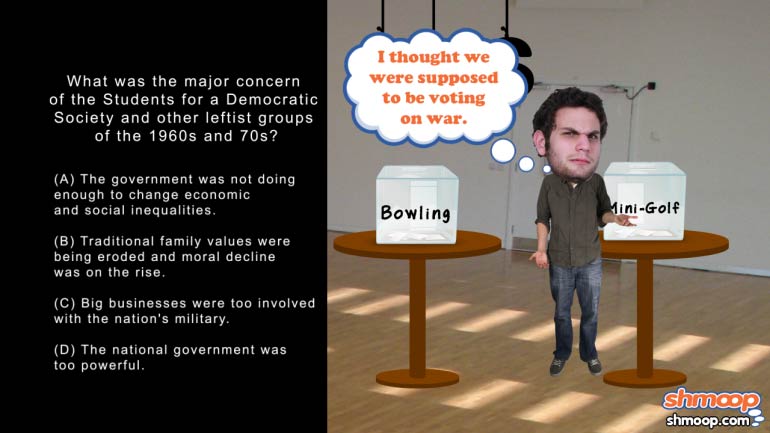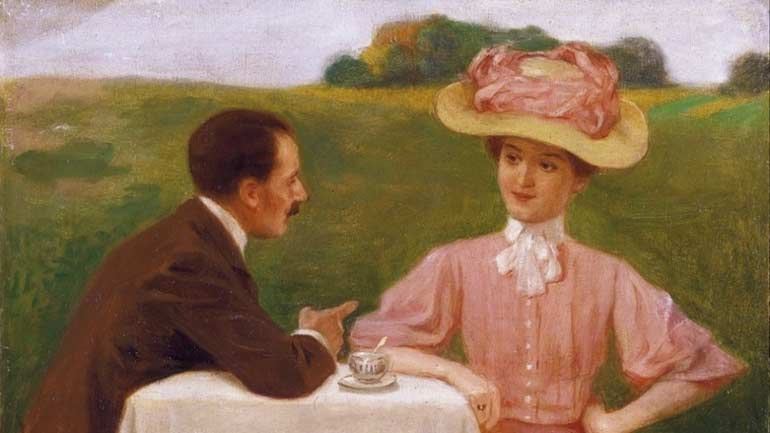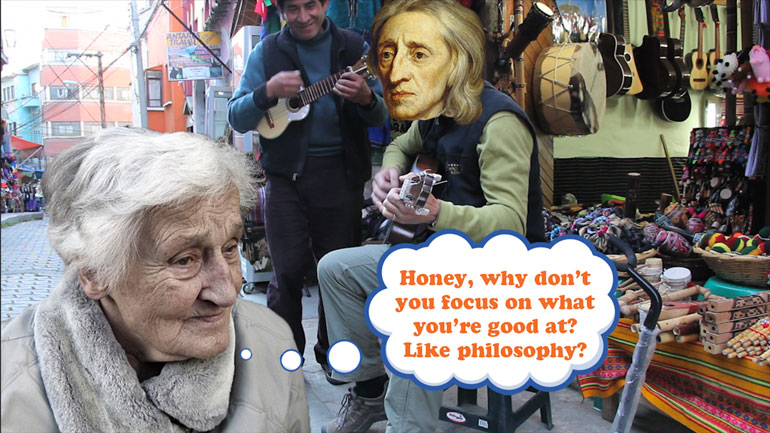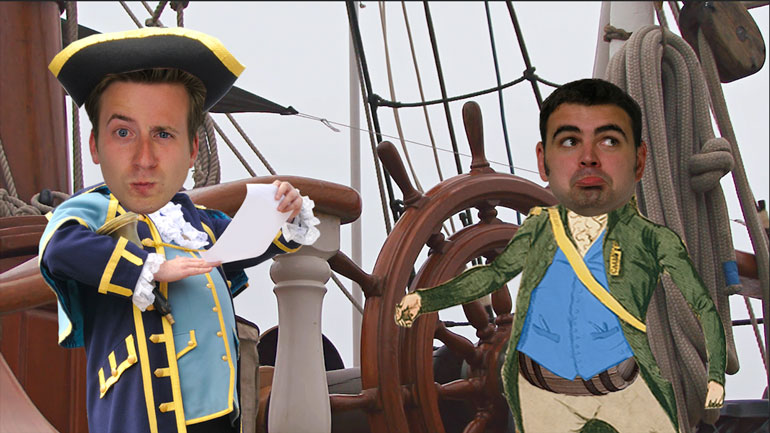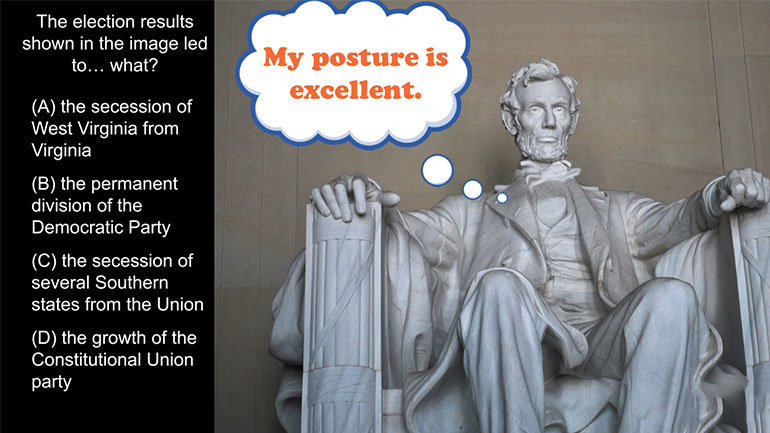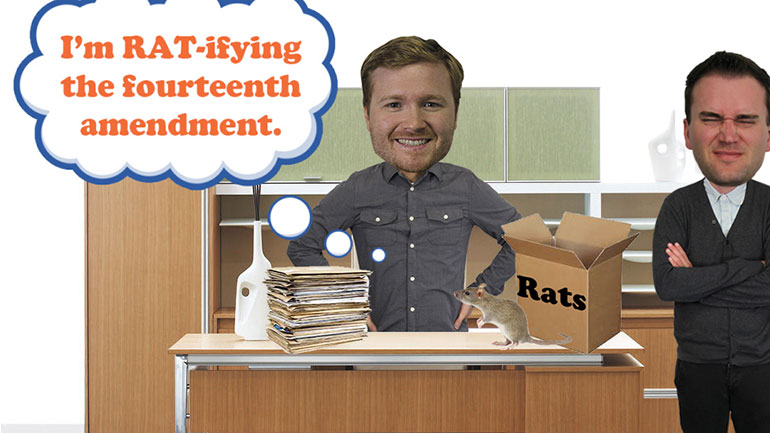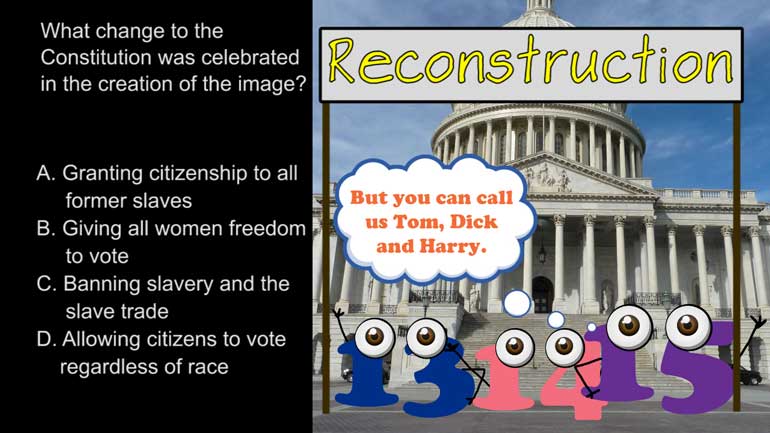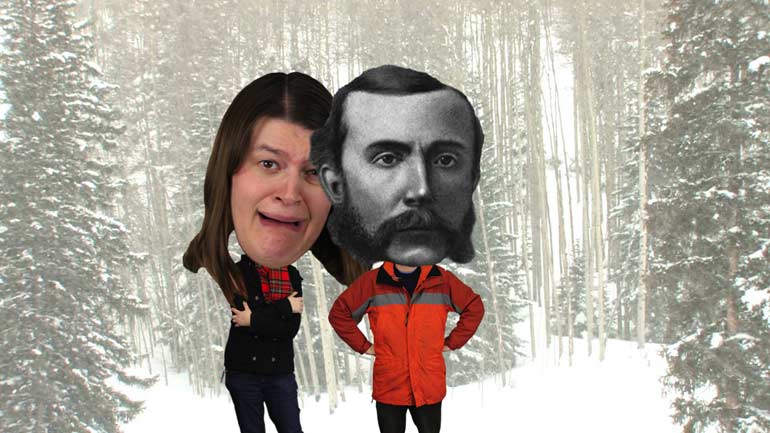ShmoopTube
Where Monty Python meets your 10th grade teacher.
Search Thousands of Shmoop Videos
Test Prep Videos 641 videos
AP U.S. History Exam 2.45. The journey shown on the map was an example of...what?
AP U.S. History Exam 2.26. This speech reinforced a shift in the focus of the war that Lincoln established by...what?
What did the Spanish messengers bring with them to North America? Hint: you probably wouldn't be thrilled to get this for your next birthday.
AP U.S. History Exam 1.29 178 Views
Share It!
Description:
AP U.S. History Exam 1.29. How might someone who believed in Social Darwinism respond to the image?
Transcript
- 00:00
[ musical flourish ]
- 00:03
And here's your Shmoop du jour, brought to you by the Gilded Age,
- 00:07
a period when everyone fished for more.
- 00:11
How might someone who believed in Social Darwinism
- 00:14
respond to the image?
Full Transcript
- 00:16
And here are the potential answers.
- 00:17
[ birds chirping ]
- 00:22
Well, during the Gilded Age, extreme wealth
- 00:25
managed to become even more extreme,
- 00:27
particularly for big business owners.
- 00:29
Let's see how followers of Social Darwinism would have
- 00:31
felt about this survival of the richest.
- 00:35
Would a Social Darwinist have responded
- 00:38
to this image by saying A -
- 00:40
Rockefeller benefited from the stable grounding of his parents?
- 00:43
Hmm. Well, Social Darwinists thought the wealthy
- 00:45
earned their money through superior minds and bodies,
- 00:49
not from whatever tangible benefits
- 00:51
their parents or the government might have given them.
- 00:53
That's a no-go on A and on C.
- 00:55
Could Social Darwinists have felt that B -
- 00:57
Rockefeller was responsible for sharing his wealth with the poor?
- 01:01
Well, many of these tycoons were in fact quite generous with
- 01:04
their money, donating funds to build
- 01:06
hospitals, libraries, and other public institutions.
- 01:08
Social Darwinists, however, felt that Rockefeller
- 01:10
had no obligation to help the unfit survive.
- 01:14
Which means that Social Darwinists would have responded
- 01:17
to the image by saying that D -
- 01:19
Rockefeller's intelligence and strength led to his wealth.
- 01:22
The main tenet of Social Darwinism
- 01:24
was that the inherently strong
- 01:26
would see their wealth and power increase
- 01:28
while the inherently weak would see the opposite.
- 01:31
So D is the correct answer.
- 01:32
Under criticism that this natural selection
- 01:35
of rich over poor was actually quite unnatural,
- 01:38
Social Darwinism eventually fell out of favor
- 01:41
and society shifted to a more evolved point of view.
- 01:46
[ plop ]
Related Videos
Ever heard of a "living document"? They eat and breathe just like the rest of us! They even walk around on their own two legs. Okay, fine—maybe t...
If the Puritans had gotten their way, religion would play a much larger role in lawmaking these days. Want to know more? Watch the video for all th...
What happened between the creation of the Articles of Confederation and the ratification of the current U.S. Constitution? This video analyzes the...
The Modernists thought the world had a lot of problems, and they were intent on fixing them—or at least talking about fixing them. Unfortunately,...
This video explains Federalism and the quest for a fair balance between state and national power. It covers the progression and compromises of Fede...

